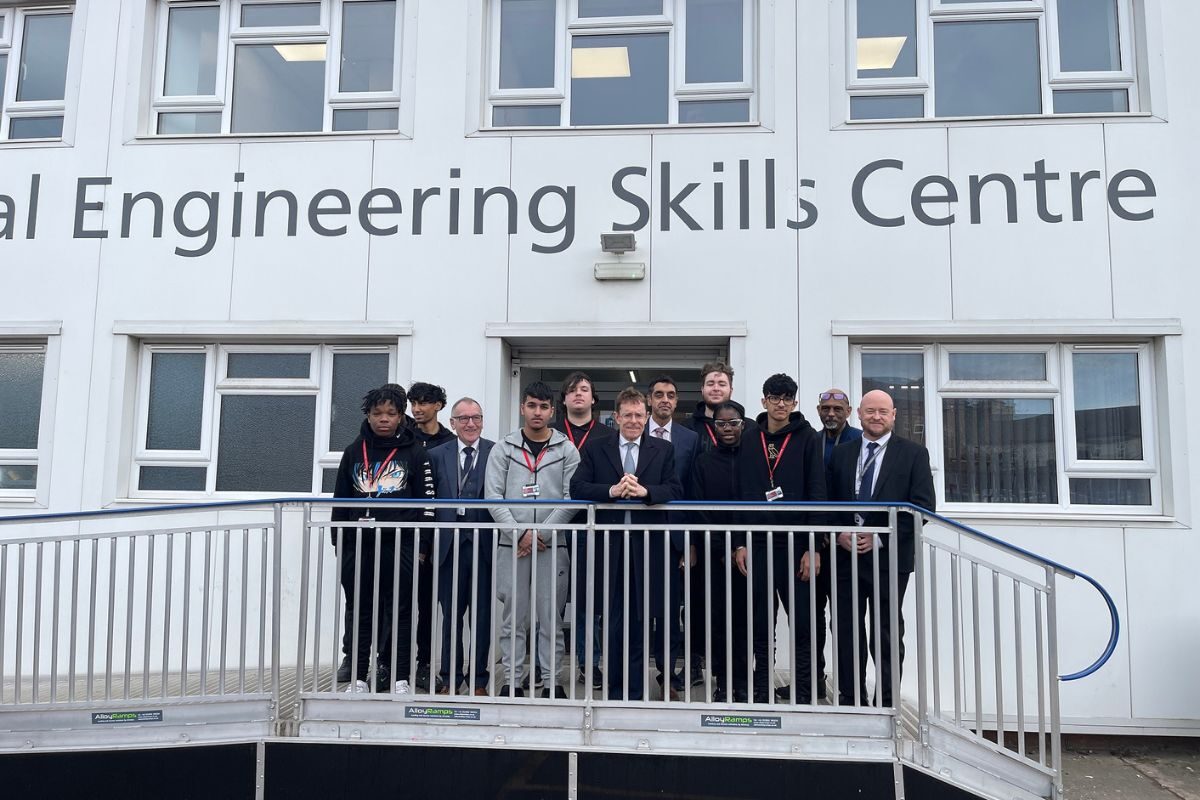Training plan to get more people into manufacturing and engineering jobs

A plan to help plug the region’s skills gap in advanced manufacturing and engineering (AME) and get more local people working in the sector has been launched by the West Midlands Combined Authority (WMCA).
The AME sector is worth more than £16 billion to the region – around 15 per cent of its total economy – providing around 200,000 jobs. But there are currently 7,000 job vacancies.
The West Midlands Regional Advanced Manufacturing & Engineering Training Plan sets out how the WMCA intends to address that shortfall, improve productivity and drive further growth by working with colleges, universities, and training providers to improve the range of sector-specific training available, and the flexibility of how it is delivered.
It also aims to get more existing employees trained up and qualified so they can improve their pay and career prospects, and encourage businesses to get involved in the drive to make the West Midlands a net zero region by helping to shape future skills training in line with the evolving environmental and technology needs of the sector.
To deliver the plan’s aims, the WMCA will increase the proportion of its devolved Adult Education budget for AME training and qualifications by £1.4 million.
Last year it spent £7.2 million with nearly 30 providers delivering training, as well as supporting nearly 300 apprentices in engineering through the WMCA’s Apprenticeship Levy scheme.
The West Midlands Regional Advanced Manufacturing & Engineering Training Plan was launched at Walsall College by Andy Street, Mayor of the West Midlands and WMCA chair.
Andy Street, Mayor of the West Midlands and WMCA chair (centre); with David Wheeler, Chair of Corporation, Walsall College; Jatinder Sharma CBE DL, Principal at Walsall College; (rear) Tracey Russell, lecturer; and Neil Sambrook, faculty director, with engineering students.
The Mayor said:
“Engineering and manufacturing remain real strong suits for us here in the West Midlands and represent important sectors of our region’s economy. Handled correctly, these sectors still have tremendous growth potential provided we continue to closely collaborate with – and meet the needs of – local employers in the months and years ahead.
“That’s why it was great to visit Walsall College and meet with some of their young people who are already benefitting from the high-quality training being provided here in our region.
“I’m looking forward to opening up this training to many more local people, creating a pipeline of new talent and preparing our existing workforce for the future – all of which will help to change lives for the better and improve quality of life for local residents.”
The AME sector has been hit particularly hard by the pandemic and other economic headwinds, which is why the WMCA has prioritised this further investment to support residents to improve their employment prospects and to provide a talent pipeline for local businesses.
As part of the new West Midlands Regional Advanced Manufacturing & Engineering Training Plan, a range of new subject courses will be delivered, including in areas such as automotive engineering, food manufacturing, aerospace engineering and manufacturing, pharmaceutical science, electro-mechanical engineering, railway engineering, fabrication and welding, materials science and engineering, and metallurgy.
In supports the WMCA’s Plan for Growth, which focusses on how eight clusters of interconnecting businesses across different sectors can work together better to drive inclusive growth in critical sectors that are vital to the region’s future success and prosperity.
In the AME sector, there is a particular focus on electric light vehicles and batteries; aerospace; future housing; and low carbon utilities linked to the region’s #WM2041 net zero ambition.
The Plan for Growth sets out the potential for 16,000 new jobs across a range of businesses linked to manufacturing and engineering, adding a further £1 billion to the economy.
A training plan was published in 2021 to create pathways into jobs in health sciences and care and in the 2021/22 academic year, WMCA invested £9.1m in sector-specific training.
Cllr George Duggins, WMCA portfolio holder for skills and productivity, and leader of Coventry City Council, said:
“It is a fundamental part of our Adult Education strategy to bridge the skills gap and increase opportunities for local people.
“We want to deliver a better match between the skills of the people in our region and the current and future needs of our manufacturing and engineering businesses to help accelerate productivity and deliver economic growth.”











The fe engineering sector suffers from a serious recruitment and retention problem. Salaries in FE don’t often reflect those to be found in industry. Even with market forces uplift, colleges struggle to fill posts. This means that learners and apprentices receive an inferior service. Good staff leave or move into management for more money. Colleges then employ staff with little or no industrial experience, a vicious circle. Until those that teach in FE are recognised and paid a professional salary the problems will continue.